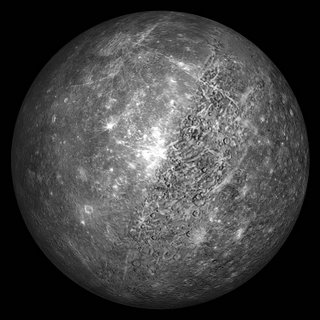"Vocatus atque non vocatus .." A Look at Astrology

Several weeks ago, Digby posed the question on Hullabaloo (one of the best political blogs around, if you haven't become a reader yet) whether astrology was really any wackier than other main-stream beliefs. You can see it here.
Her conclusion was that it probably wasn't, and that, from a political standpoint, it was probably not wise for materialist progressives to make an issue of it:
Let me tell you, it is as big a faux pas to disparage astrology or any of the new age or non-traditional spiritual belief system as it is to put down mainstream religion. I found this out the hard way when I wrote a very snarky and admittedly insulting post one day and got more angry feedback than any post I've ever done. These beliefs in the aggregate may be as widely held as a belief in God and it cuts across all political and cultural lines. Call it kooky if you will, but those who think secular liberals should STFU about traditional religion would be well advised to STFU about this too.Note to my fellow progressives: I think that's exactly right.
I don't usually participate in comment threads on other blogs, but I couldn't resist that one. It went pretty much as you might expect, with lots of irate posts about how astrology was "bullshit", etc., from folks whose whole acquaintance with it must have consisted of having once or twice read their daily horoscopes on a newspaper's comic page, and lots of others by folks who had real background in it in some form, whether as astrologers or as students of the humanities who realized that astrology's been a rich treasure of lore about the human critter for several millenia. One very interesting fact: that post gathered comments for eight days, long after it had migrated down and off the front page of the blog. Just out curiosity, I copied the comment thread to a Word document; in an 11 point font with 1" margins all around, single spaced, it was 77 pages long. That's a lot of comments, and only eight or nine, most of them short, were mine.
I was introduced to astrology at the end of the nineteen sixties in Buffalo, by some friends, fellow grad students, who were beginning to explore it. I actually began to dig into it in a very specific way (looking beyond the sun sign) on an early trip west, when my car got stuck in a blizzard near Libre, the still-thriving commune in Colorado, where I was headed to visit friends for a few days. Weeks later, car having been towed, recovered, had its electrical system pretty much replaced (it was a '64 Volkswagen, so there wasn't much, thankfully), I headed out again, having by then had my chart done by the commune's resident astrologer. Mercury was retrograde, he had told me, in Scorpio, the sign of my Sun and of my Mercury, the gods' messenger, god of travel; I shouldn't be on the road. It made sense to me, but I was determined to press on, since I'd originally planned to stay there only a few days. And then my car's poor engine blew in the middle of the Mojave desert. I wound up having to have money wired in order to buy there, in that California desert outpost of vultures, the only vehicle I could find affordably for sale, a '48 Jeep wagon. It barely got me to San Francisco, burning oil and pumping exhaust fumes into the cabin (I drove with my head out the window) all the way. When I got to San Francisco, I stopped - and swore to myself that I was going to learn more about astrology.
Finding astrological texts in the Bay area was not a problem. Berekely was full of great bookstores, of course, and I found everything I needed in short order: ephemerides, tables of houses, and a Rosicrucian astrological textbook by one "S. R. Parchment" which I used as a reference for many years.
I also found poetry that I hadn't seen before in Berkeley - lots of Duncan, Spicer's books, some Philip Lamantia, Ebbe Borregaard, Gary Snyder titles other than the New Directions books I'd already found elsewhere. My resolve to learn astrology was strengthened by Snyder's still relevant "What You Should Know To Be a Poet," from Regarding Wave:
When I got to the little town of Alert Bay, British Columbia, my destination all those weeks, I began doing charts. Within a few years I'd learned the types of traditional magic Snyder mentions, and much else in his list besides. I still believe that knowledge of these age-old systems and the lessons they impart gives more to young poets than, say, a knowledge of the permutations of the sestina, or the pantoum. Not that there's anything wrong with knowledge of poetics, of course. It helps to have that too. But learning something else as well, something beyond poetics, will stand a poet - or a person - in good stead; if nothing else, it'll give him or her a variety of complex cognitive frameworks for thought, for play, and meditation.all you can about animals as persons.
the names of trees and flowers and weeds.
names of stars, and the movement of the planets and the moon.your own six senses, with a watchful and elegant mind.
at least one kind of traditional magic:
divination, astrology, the book of changes, the tarot;dreams.
the illusory demons and illusory shining gods;kiss the ass of the devil and eat shit;
fuck his horny barbed cock,
fuck the hag,
and all the celestial angels
and maidens perfum’d and golden –
& then love the human: wives husbands and friends.childrens’ games, comic books, bubble gum,
the weirdness of television and advertising.work, long dry hours of dull work swallowed and accepted
and livd with and finally lovd. exhaustion.hunger, rest.
the wild freedom of the dance, extasy
silent solitary illumination, enstasyreal danger. gambles. and the edge of death.
Skeptical materialist friends probably consider me daft, I don't know. Or, by this time, care. It's worth all of us remembering, though, that Carl Jung, one of the last century's foremost psychologists, considered astrology the "summation of all the psychological knowledge of antiquity." He often cast charts for his patients, and considered that they offered valuable insights. In 1929, he puzzled over the relationship in these words:
Our modern science begins with astronomy. Instead of saying that man was led by psychological motives, they formerly said he was led by his stars. ... The puzzling thing is that there is really a curious coincidence between astrological and psychological facts, so that one can isolate time from the characteristics of an individual, and also, one can deduce characteristics from a certain time.Later in his work, his study of astrology played a role in the development of the theory of synchronicity; in 1947 he posited that
Therefore we have to conclude that what we call psychological motives are in a way identical with star positions. Since we cannot demonstrate this, we must form a peculiar hypothesis. This hypothesis says that the dynamics of our psyche is not just identical with the position of the stars, nor has it to do with vibrations - that is an illegitimate hypothesis. It is better to assume that it is a phenomenon of time. ... The stars are simply used by man to serve as indicators of time.
Astrology is of particular interest to the psychologist, since it contains a sort of psychological experience which we call projected - this means that we find the psychological facts as it were in the constellations. This originally gave rise to the idea that these factors derive from the stars, whereas they are merely in a relation of synchronicity with them. I admit that this is a very curious fact which throws a peculiar light on the structure of the human mind.In another article, he summed up his understanding of the statement of astrology this way:
We are born at a given moment in a given place and like vintage years of wine we have the qualities of the year and of the season in which we are born. Astrology does not lay claim to anything else.That's the gist of it, indeed. But it does offer a look a the energies at play in a given moment as related to the chart of the birth, that record of time's imprint, as well. As Jung noted, ".. there is really a curious coincidence between astrological and psychological facts, so that one can isolate time from the characteristics of an individual, and also, one can deduce characteristics from a certain time." There's some link there, between the moment and the formation of character, and later between the moment and our experience within it, between Mercury's movement and our experience in Mercury's domain, a link ancient intelligence began to ken millennia ago, however that curious link be defined.
One contemporary astrological writer likens transits (the passages of planets in relation to earth, like that of Mercury I've related), to visits of the gods in one of Ovid's stories.
The gods were quite concerned that they were being ignored. So Jupiter (the chief ruling god of thunder) and Mercury (the messenger god) visited Earth disguised as poor, beggarly travelers. All the many people who refused Jupiter and Mercury shelter were drowned in a great flood and thus repaid for their godlessness. Conversely, those who openly welcomed the unknown visitors into their home were then honored with the fulfillment of their greatest desires and hopes.
...
There's an old Latin saying engraved on the gravestone of the great archetypal, depth psychologist, C. G. Jung: Vocatus atque non vocatus deus aderit. Translated, this means: "Called or not called, the god will be there." In her book Archetypal Dimensions of the Psyche Jungian author Marie-Louise von Franz tells us: "It seems to me to be one of the greatest contributions of Jung and his work that it taught us to keep our door open to the 'unknown visitor.' He also tried to teach us an approach through which we can avoid the wrath of this visitor, which every frivolous, haughty, or greedy host in the folk tales brought down on himself. For it depends only on ourselves whether this coming of the gods becomes a blessed visit or a fell disaster.""It depends only on ourselves," after all. Astrological transits are like the weather, setting limits, perhaps, though it's finally up to us whether to venture out in the rain. Or drive, as I did, to California, come hell, as the saying goes, or high water.
But whatever its perceived usefulness, there's finally, as with any belief, the comfort of the complexity and depth of its structure, and the consolation, at least, of being in good company, ancient, modern, and after.
~~~~~~~~~~~~~~~~~~~~~~~~~~~~~~~~
Update August 13, 2006: I added some more links, including two for Snyder - and modified the template to make them more visible.
The rendered image of Mercury is based on Mark S. Robinson mosaics of Mercury and Steve Albers' cylindrical map projection. There are Jung texts on astrology on the web, here (sorry about that background) and here, and elsewhere.
The image is Copyright © by Calvin J. Hamilton. Any commercial/for-profit use of this image needs to be addressed to Calvin J. Hamilton.
Update June 24, 2007: I corrected Digby's gender, and a few spelling errors; Blogger didn't have automatic spell checking at the time of the original post. I can see I needed it!
Labels: astrology, Further Studies

1 Comments:
Thanks for the Snyder poem. That's been one of my favorites since I found it tacked to the back of a dormitory door while working as a teenage housepainter in Massachusetts. anyway, it struck a chord that has resonated ever since, and I'm thrilled to see it again.
Post a Comment
<< Home